On the 4th of August, 1964, near the height of the Cold War, the President of the United States interrupted a national television broadcast and falsely told the American Public that two US destroyers had been attacked with torpedoes by North Vietnamese (communist) gunships. The “false flag” incident resulted in the Gulf of Tonkin Resolution winning overwhelming support from the US Congress, which opened the doors for military action by the United States in Southeast Asia. US airstrikes began immediately and the decade long Vietnam War commenced. Nearly a million Vietnamese were killed during that decade.
We entered Vietnam a few days ago knowing frankly quite little about the events of the 60’s and 70’s and were surprised by much of what we’re now learning in the details. Perhaps we were naive, or perhaps we’re like many Americans that grow up to realize their version of “history” has been at least slightly whitewashed. But like most people visiting Vietnam, it’s difficult to ignore what happened in that decade because the scars here are so deep. The Vietnamese we’ve spoken to have been surprisingly well educated about their own country’s history, which actually is a peculiar blessing for visiting Americans. That’s because Vietnam has such a long history of violent invasions that the Vietnam War (or the “American War” from their perspective) isn’t an entirely unique event in their broader history. We’ve found their ability to move on from the events of those years to be something quite remarkable.
We’re splitting our time in Vietnam between sight seeing excursions and conducting field research for Focusing Philanthropy, meaning we’re moving at a whirlwind pace like we haven’t done in some time. Our first few days took us through the country’s second largest (and second most chaotic) city, Hanoi, then up to the infamous Halong Bay on a “Junk boat” overnight cruise near Vietnam’s northern tip. We then hopped on the overnight sleeper train down to Hue in central Vietnam for our first NGO visit, and to learn about one of Vietnam’s social problems that still needs work.
An unfortunate feature of many developing countries is that most forms of mental illness carry a harsh alienating stigma. In many countries we’ve visited we’ve seen that conditions like schizophrenia, epilepsy, and even depression or anxiety are ineligible for treatment through government health programs, leaving people with mental illness in a hopeless state. In Hue we met with Basic Needs, an NGO that operates mental health programs throughout Asia and Africa. Their program provides treatment to patients and helps them become productive and fully re-integrated into the community. Their model also opens public health programs to treatment of mentally ill patients and has made huge strides towards eliminating mental health stigmas in some countries. During our two days with Basic Needs here in Hue we’ve seen first hand exactly how they’ve achieved all these results here in Vietnam… another experience that’s left us slack jawed and amazed by what a small team of extraordinary people can achieve.
It’s time for us now to hop on a bus and continue our journey south through Vietnam towards Ho Chi Minh City. We’ll be making a stop or two along the way as we’ve got a couple spare days on the calendar. But with so much to see in South Vietnam, we’re definitely getting the sense, once again, that time is our biggest enemy.
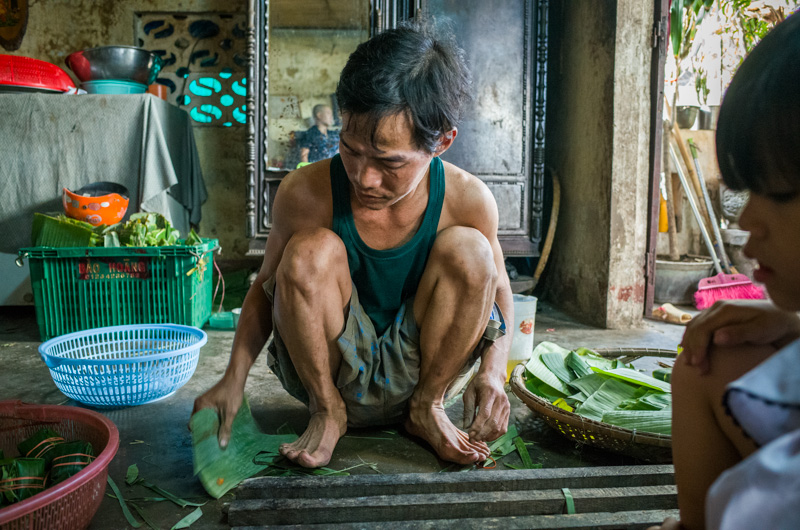
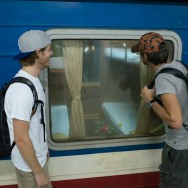
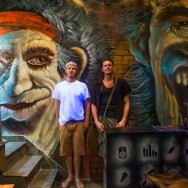
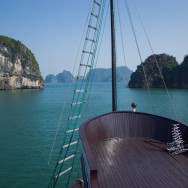
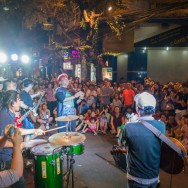
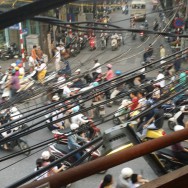

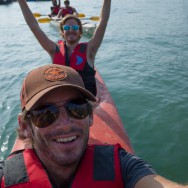
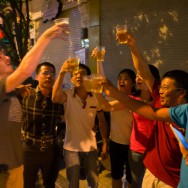
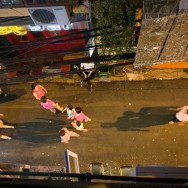
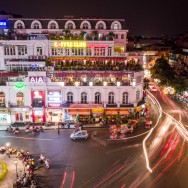
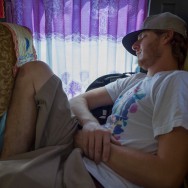
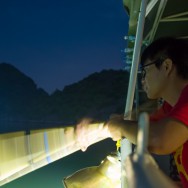
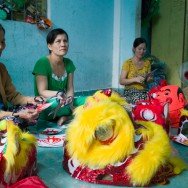
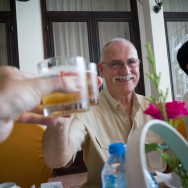
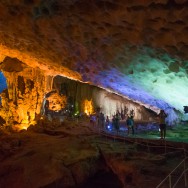
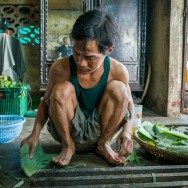
I am stunned by what you two J and P are doing here, post after post. You leave me speechless reading about your experiences.
Keep up the beautiful work,
Rick from Airlie Beach
Basic Needs – what an amazing charitable cause – and you are to be commended for your compassion and interest, and fortuitous connection with Eli and focusingphilanthropy,com.
“Being kind to others is a way of being good to yourself.”
Wiring throughout a major city that resembles bird’s nests is crazy! How do the citizens get reliable consistent power? And their traffic situation makes the 405 look like a country road.